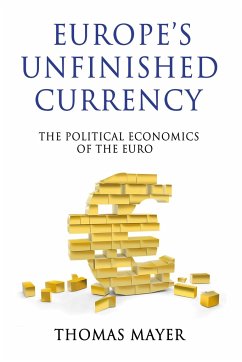The euro was originally seen as another stepping stone to a politically unified Europe, which in turn was seen as a guarantor of peace. With the fall of the Berlin Wall, the disintegration of the Soviet Union and the unification of Germany, the need for European political union as a means to ensure peace in Europe disappeared. Due to the fading will for full political union, the euro project lost the prospect of a stable platform in the foreseeable future, and the euro crisis (a result of the global credit crisis) is forcing policymakers to develop a new architecture for EMU. Europe's Unfinished Currency postulates that this can only be done by way of a currency union of sovereign states, as a political union is ultimately unrealistic. This in itself is a unique historical experiment, as no such union has ever survived to date. This volume offers ideas of how the EMU could potentially work, and sketches scenarios of how things might evolve in case of failure. Key Insights: -Outlines the origins of the euro within the quest for the unification of Europe. -Explains the historical failures of past monetary unions, including the Latin and Scandinavian currency unions, the US dollar standard and the Austro-Hungarian union. -Posits that the European Central Bank in cooperation with a European Monetary Fund should act as the lender of last resort to all systemically important borrowers, including governments, to safeguard price stability. -Proposes a new EMU architecture, which includes the creation of a European Monetary Fund. -Discusses possible mutations of the EMU in case of failure.
Bitte wählen Sie Ihr Anliegen aus.
Rechnungen
Retourenschein anfordern
Bestellstatus
Storno








